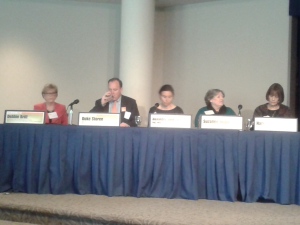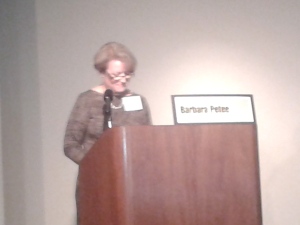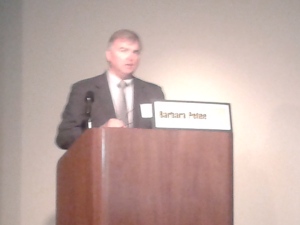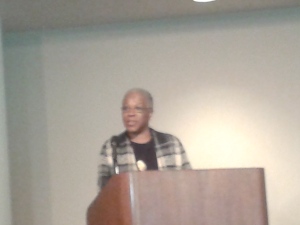This week at the Come to the Table Promedica Workshop at the Jimmy Carter Center in Atlanta, GA, I had a chance to listen to the panel discussion on what is working and what we need to work on in the fight against hunger.
Harriet Giles, PHD, Managing Director from Auburn Hunger Solutions Institute and Director of External Relations, College of Human Sciences Auburn University – discuss about the Alabama model delivery trucks for the Summer Children’s Program which provides healthy meals for children during the summer months when school is closed.
Susan Respess – Auburn Hunger Solutions Institute and Vice President of Government Relations of Children’s of Alabama – talked about medical compliance relationship with kids access to food in order to take their medications.
Alexandra Lewin-Zwerdling, PHD, MPA – Senior Adviser, Hunger Impact of AARP Foundation – discussed that the revised version of the My Plate has been very effective in the fight against hunger. Ms. Lewin-Zwerdling did said what is not effective is that alot of the 50+ years older adult population are having a lack of money, poor locations and availability to healthy foods. This population group are usually tremendous effected by the food deserts in their communities.
Duke Storen, Senior Director, Research, Advocacy and Partner Development of Share Our Strength explained that 1 in 5 children have fallen into the category of food insecurity. What is working to fight hunger is the school breakfast program, WIC, food skill education programs from individual grants and SNAP for low income children. What is not working is less participation in SNAP program. What could work better is the benefits and funding levels of the SNAP program needs to increase particularly for the out of school time such as after school programs, weekends and summertime. Mr. Duke Storen explained that there is more poverty is in the suburbs than in the inner cities. Mr. Duke Storen gave us a Five Points Plan that will assist with eliminating hunger.
5 Points Plan
- Screening
- Direct Services – Ex. WIC
- Leadership
- Metric Driven Based Program
- Funding
- Advocacy
Debbie Britt – Board Member of the Meals on Wheels Association of America (MOWAA) and Executive Director Community & Public Relations, Piedmont Fayette Hospital explained what is working is the collaboration with the communities with transportation issues to healthier supermarkets, helping the community with changing their lifestyle and having physical exercise programs at Senior Centers such as Zumba and providing Meals on Wheels programs. Ms. Britt did explained what is not working is that hospital not understanding the importance of learning about nutrition and that Medicaid does not pay for nutritional services.
At the end of the workshop, Mike Beier from President and CEO, ContXt, gave us a Engaging the Community to End Hunger: Meeting in a Box Dialogue game where you can have a engaging group discussion about ways that the community can end hunger. I can not wait to use this with my clients and community leaders. This one day workshop was a excellent event and hopefully we will have more voices who are willing to fight against hunger and make it a health issue!









